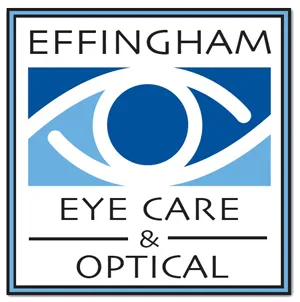
Vision therapy is a doctor-supervised program that helps people of all ages improve their visual-motor skills. Therapy helps your eyes and brain work together better, even if you have perfect vision. For years, people believed that some types of eye conditions, such as lazy eye or crossed eyes, could not be corrected after childhood, but, today, vision therapists and other eye care professionals know that's not true. Here’s how vision therapy can help adults!
Conditions Treated
Vision therapy is used to treat a variety of conditions, including:
- Poor binocular vision. When your eyes do not work well together, problems with reading, depth perception and other problems can occur.
- Convergence insufficiency. Convergence insufficiency makes it difficult to focus on close objects.
- Amblyopia. Also known as lazy eye, amblyopia occurs due to lack of central vision in one eye, even though there is no problem with eye health.
- Diplopia. Diplopia causes double vision.
- Strabismus. If you have strabismus, your eyes may appear crossed, or one eye may wander or turn in.
- Other conditions. Brain damage, strokes and injuries can affect your ability to use your eyes, even if your vision is not affected.
Vision Therapy Can Improve Everyday Performance
Your ancestors did not spend their days reading, working on the computer and checking their text messages. Because cave men used near and far vision about equally, they probably did not experience the problems that modern man does. Since hunting and gathering is no longer a viable job option for most individuals, many people spend hours intently focusing on computers and spreadsheets, often with uncomfortable results. The resulting fatigue, eye strain and eye irritation can affect your ability to function at work. The good news is that vision therapy can help!
Vision therapy is also helpful in improving sports performance, whether you are an aspiring professional athlete or a weekend tennis player. Therapy can improve eye-hand coordination, visual reaction time, focusing and eye tracking and teaming.
Symptoms That Can Indicate a Problem
Symptoms can vary based on your individual problem, but vision therapy may be able to help you if you have any of the following symptoms:
- Trouble reading for long periods of time
- Headaches
- Eyestrain when reading or using a computer
- Double vision
- Attention span problems when you must use your near vision
- Blurred vision
- Omitting words when you read
- Inability to retain what you have just read
- Reversing letters or numbers
- Words seeming to run together when you read
- Irritated or red eyes
- Trouble with vertigo or motion sickness
- Losing your place when you read
- Feeling tired when you read
- Squinting or covering an eye to see better
- Words jumping or floating on the page or screen
- Difficulty with night driving or judging distances
- Trouble using binoculars
How Can Vision Therapy Help?
Vision therapy has been called physical therapy for the eyes. It can help improve focusing, visual tracking, eye teaming and alignment, visual processing and eye movements. During therapy, you will train your brain, eyes, visual pathways and eye muscles to ensure that your eyes work together and focus properly. You will: learn how you can spend hours on the computer without developing eyestrain and headaches; learn techniques that will help you improve your sports performance; do a better job of judging distances when you drive; or finally overcome lazy eye. Therapy is tailored to your specific problem and is not a one-size-fits-all solution.
If you think you could benefit from vision therapy, contact us today!
